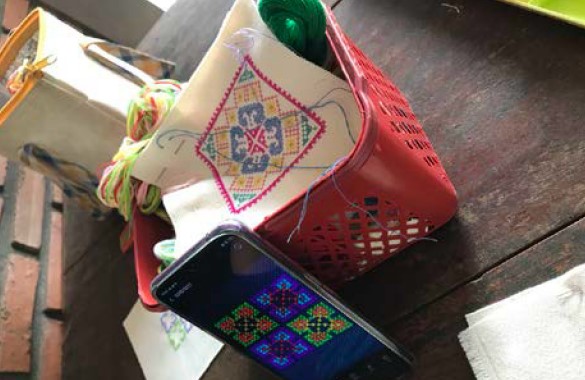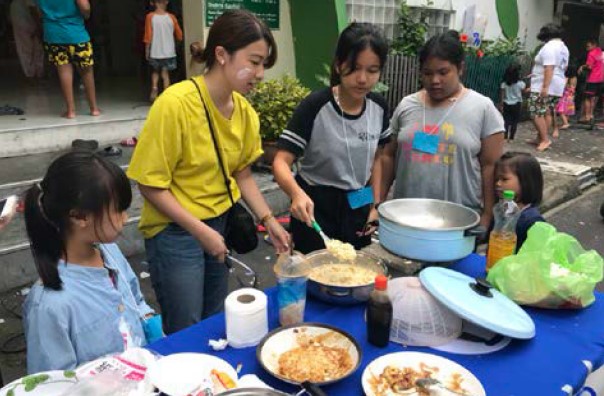The Military’s Participation in the Thai National Government

Research background
In Southeast Asia, the military participates in politics more than is necessary. After the Cold War, the people thought that the power of the military would decrease and that they would no longer be able to participate in politics. However, in reality, the military in Southeast Asia still has an effect on politics. In Thailand, the military historically carried out coups and today reigns over the country. Prayuth Chan-ocha, who is at the head of the military regime, said that the government is considering carrying out general elections to ensure a democratic regime, but this has not occurred yet.
The Thai military have maintained their influence for a long period of time. Under military control, Thai society is confused and some unusual things are occurring, such as the repeated postponement of general elections and the royal family’s participation in the national government. Thus, this research was started on the basis of a question, namely, “How should a military act in a democratic society after an election?” To answer this question, it is necessary to consider the military’s participation in politics and the problems of a military regime.
Research purpose
Previous studies have offered several accounts regarding the factors behind the phenomenon of the reciprocal approach between military regimes and democratic governments. Thak Chaloemtiarana researched the military regime under the government of Sarit Thanarat and called Sarit’s political leadership dictatorial paternalism. In addition, Hirofumi Yamamoto said that the government that won a Thai election was usually brought down because of unfair interventions.
Furthermore, in order to determine the best relationship between the military and democracy, it is important to consider the kinds of military regimes that were formed after coups, and the transition from a military regime to a democratic government. However, this aspect of the problem is relatively understudied. Therefore, this research tries to consider how a military should act in a democratic society and tried to find the ideal relationship between the military and democracy.

Results/Achievements
In my fieldwork, my aim was to research Thai society under a military regime. When I planned to do my fieldwork, the military regime that started in 2014 was considered to finish after the general election in February 2019. Therefore, to understand Thai politics after returning to a democratic form of government, I tried to focus on understanding the relationship between the royal family, the military, and the Thai people. I watched TV programs on the royal family and the news every day and became knowledgeable about Thailand’s social problems. Moreover, I created opportunities to debate Thai politics with Thai people. Even when there are fewer problems in Thailand, the people insist on being dissatisfied with the military regime and the King of Thailand.
The primary result of my fieldwork was the expansion of my group sharing links. Through a seminar held by the Japanese association in Thailand, I met a Japanese woman who helps minority students in Chiangrai and visited them. I also joined volunteer activities in the Klong Toey slum. As a result of these activities, I could meet people who were rich in experiences and knowledge about Thailand.
Finally, I spent time studying the Thai language. For my future research, acquiring the Thai language is necessary for conducting interviews or reading books written in Thai. I completed all six courses on both speaking and writing at the school I attended. It cannot be denied that I improved my Thai language abilities.
Plans for further research
During this fieldwork, I could spend time studying the Thai language. However, I could not conduct research using the Thai language and collect data for my research due to a lack of preparation and planning in Japan. Therefore, it is clear to me that, in addition to learning the language, I must rethink my research topics and examine my previous research again. In the next term of fieldwork, I am going to decide on who I need to interview before starting my fieldwork and then conduct the interview in order to ask questions about the military regime. Furthermore, I am going to collect facts for my research from magazines and newspapers in Thailand. At this time, I have to make good use of the group sharing links that I made during this round of fieldwork and the Thai language to conduct research during the next fieldwork term. It will then be possible for me to find the ideal balance of military participation in the national government under a democratic regime.
Himawari IZUMI
Enrollment year: 2018
Country visited: Thailand
Research period: August 25, 2018 to January 11, 2019